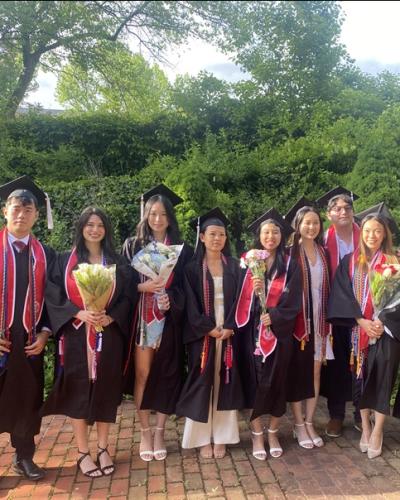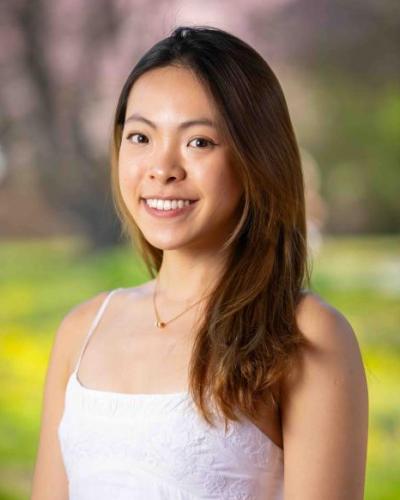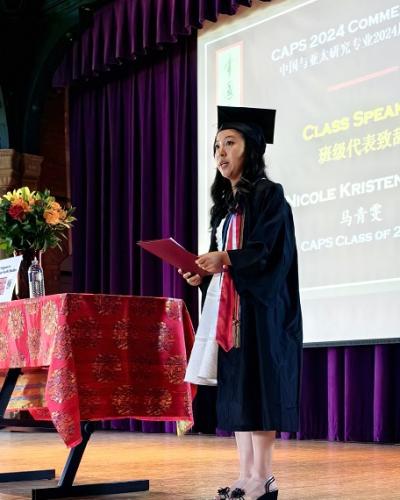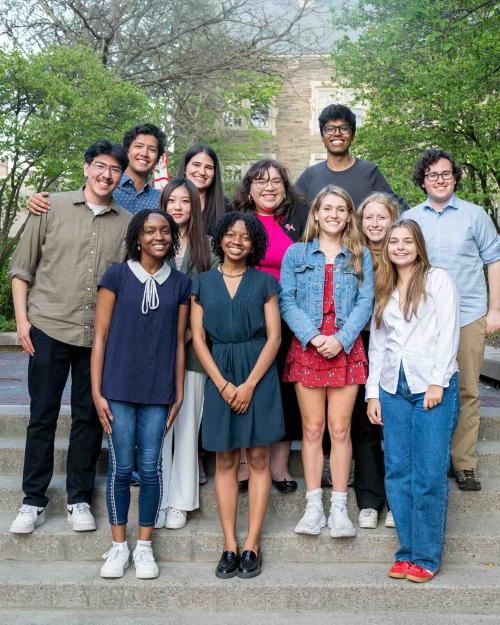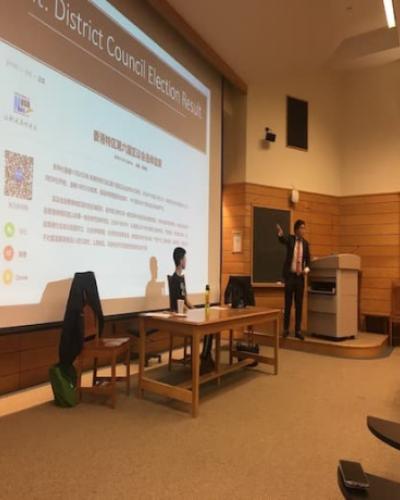Over the past year, the world has watched tense protests and conflict unfold in Hong Kong, and — though a hemisphere away — tensions at Cornell, too, rose in recent months as pro-Hong Kong posters taped to bus stops and lamp posts were vandalized across the Cornell campus.
With the conflict in mind, the China and Asia Pacific Studies Program and two undergraduate students with strong relations to China and Hong Kong formed a “teach-in” in the hopes of creating an open forum that was both informative and inclusive of different views.
Prof. Allen Carlson, Director of the CAPS program, moderated the debate.
Students Kinen Kao ’22, a student from Hong Kong active in on-campus protest movements, and Weifang Yang ’20, a student from mainland China, presented on the chronology of issues affecting Hong Kong and on mainland Chinese sentiments.
While the Hong Kong protests have been attributed to the consideration of a controversial Extradition Bill, Kao said that Hong Kong residents have had a long history of tension with the mainland Chinese government.
Although the controversial bill was ultimately withdrawn, hesitation over the bill’s future exacerbated the protestors, leading to a June 12 protest in which a violent police reaction ensued.
The protestors reacted with a call for “5 Demands, Not One Less.” This, Kao said, was the culmination of “genuine democracy that [Hong Kong protestors] have fought for, for over 22 years.”
The “teach-in” aimed to also understand the pro-establishment views of many Chinese citizens abroad and at Cornell. Yang’s presentation highlighted two aspects of the protest movement: the media environment in China and sentiments of his Chinese peers.
To present the pro-establishment view, Yang interviewed several mainland Chinese peers in preparation for the event. The questions centered around their understanding of the situation in Hong Kong, the domestic coverage of Hong Kong by the Chinese government and the future that they would want for Hong Kong.
Yang’s surveyed peers all supported the Chinese establishment and wanted the current party to stay in power. All five of the surveyed also said that they believed that both sides had engaged in equally violent tactics.
“All agreed [that] the current Hong Kong protests are not separatists,” Yang said.
Through the “teach-in,” Professor Carlson hoped to “draw the attention of students who might not be focused on Hong Kong.” And to students who may keep up, “to consider the difference between examining [the Hong Kong Protests] from a normative, analytical, and policy-oriented perspective.”
Ultimately, Carlson hoped that the event was just the beginning of this conversation at Cornell.
This article originally appeared in the Cornell Daily Sun.


